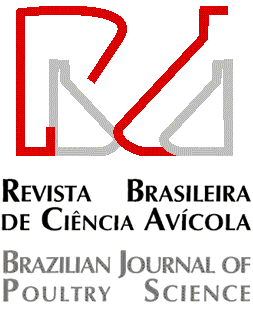ABSTRACT
This experiment was conducted to investigate the effect of feeding different concentrations and sources of zinc (Zn) on the growth performance, tissue mineral status, bone morphology and immunity responses in 0-4-week broiler chickens. Four hundred and forty 1-d-old broiler chickens were assigned randomly to 11 dietary treatments with 4 cages per treatment and 10 broiler chickens per cage in a completely randomized design. Dietary treatments were: corn-soybean meal basal diet (negative control), basal diet supplemented with 5 g yeast/kg (yeast), and basal diet supplemented with 20, 50, or 80 mg of added Zn/kg as ZnSO4, Zn-Met, or Zn-yeast in a 3 x 3 factorial arrangement of treatments. The results showed that broilers fed Zn supplemented diets had greater average weight gain and average feed intake than chickens fed the negative control diet (p<0.05). The Zn deposition in tibia, meat (thigh and breast) and excreta increased (p<0.01), regardless of source, in response to increasing dietary Zn concentrations. Zinc level increased dry weight of tibia bone and its large diameter. The strength of tibia bone as judged by Seedor index and breaking strength was improved (p<0.01) with Zn concentration in increased diets. Furthermore, supplemental Zn up to 50 mg/kg improved immunity responses of broiler chickens (p<0.01). It is concluded that supplementation with 50 mg Zn may be sufficient for normal broiler growth up to 28 d of age and the dietary inclusion of organic Zn could be utilized more effectively when compared to inorganic sources.
Keywords:
Broiler chickens; growth performance; bone characteristic; immunity; Zinc
